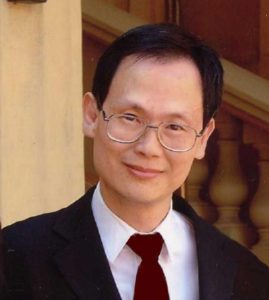Research into Collaborative Robotic Disassembly for Smart Remanufacturing
Wednesday 20 October 2021 at 1:00PM BST (2:00 PM CET, 8:00 AM EST)
By Duc Truong Pham (University of Birmingham, United Kingdom)

Register now using the link below:
https://attendee.gotowebinar.com/register/856425417441630479
Abstract:
Product disassembly is usually the first step in remanufacturing, a process where used products are returned to a good-as-new condition with a guarantee at least equal to that for the original product. How disassembly is undertaken can affect the efficiency and capability of remanufacturing. As it is complex, disassembly tends to be manually performed and is labour intensive. Efforts have been spent on introducing collaborative robots or cobots in disassembly to make remanufacturing ‘smarter’. Like other applications of Industry 4.0 automation technologies, this should lead to increased productivity, reduced failure rate, more resource-efficient operations and improved product quality and working environment.
This presentation will cover research carried out as part of the 5-year Autonomous Remanufacturing (AutoReman) research programme funded by the UK Engineering and Physical Sciences Research Council at the University of Birmingham. The aim of the work, which investigates disassembly science and devises intelligent disassembly strategies and plans and develops human-robot collaborative disassembly techniques, is to allow disassembly to be reliably performed either with minimal human intervention or in a collaborative fashion by man and machine.
Presenters’ bio:
Duc Truong Pham BE PhD DEng holds the Chance Chair of Engineering at the University of Birmingham where he started his career as a lecturer in robotics and control engineering following undergraduate and postgraduate studies at the University of Canterbury in New Zealand. Prior to returning to Birmingham in 2011, he was Professor of Computer-Controlled Manufacture and Director of the Manufacturing Engineering Centre at Cardiff University. His research is in the areas of intelligent systems, robotics and autonomous systems and advanced manufacturing technology. He has published over 600 technical papers and books and has graduated more than 100 PhD students. He is a recipient of several awards including five prizes from the Institution of Mechanical Engineers, a Lifetime Achievement Award from the World Automation Congress and a Distinguished International Academic Contribution Award from the IEEE. He is a Fellow of the Royal Academy of Engineering, the Learned Society of Wales, the Society for Manufacturing Engineers, the Institution of Engineering and Technology and the Institution of Mechanical Engineers.

